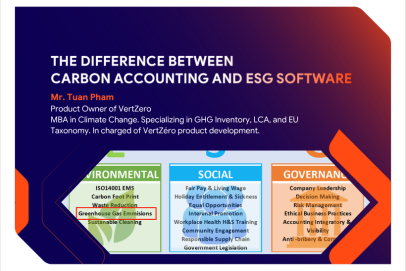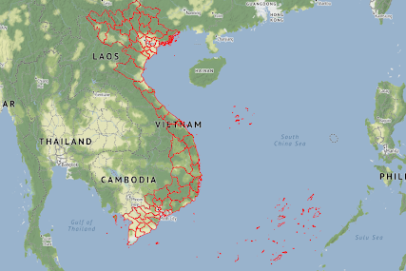The forefront of BPO services revealed by FPT, the largest IT company in Vietnam
Many Japanese companies, regardless of industry or size, are currently facing a labor shortage. If there is not enough human resources, it will be difficult to continue the business, let alone grow. The use of external resources is attracting attention as a concrete solution to the most important management issues. By outsourcing various business processes, it becomes easier to concentrate internal resources on priority areas. When it comes to business process outsourcing (BPO), outsourcing to China used to be prominent, but services that can avoid the risks of relying on a specific country are now emerging. We explored the latest trends in BPO services.
Currently, the average age of Japanese people has risen to about 50 years old. With labor shortages making it difficult to recruit human resources, it is becoming increasingly difficult to recruit young, energetic employees. Traditionally, BPO for Japanese companies aiming to alleviate labor shortages and secure a workforce of younger generations has mainly been conducted in China, as the average age in China is low and, like Japan, they use Chinese characters, meaning that they can quickly understand Japanese. However, in recent years, the number of young people has decreased due to the one-child policy, the average age has risen, and economic growth has caused labor costs to rise. Adding to this the recent geopolitical risks, an increasing number of companies are looking for BPO that does not rely on China.
So which country should you request BPO from? Vietnam could be a strong candidate. The average age of Vietnamese people is in their early 30s, the population is approximately 100 million people, the third largest in ASEAN (Association of Southeast Asian Nations), and the number of Japanese language learners is the highest in Asia.
Many Japanese companies outsource their BPO operations in Vietnam to FPT. The company is Vietnam’s largest IT company, and in addition to providing digital transformation (DX) support for Japanese companies, it is also focusing on BPO, which it started in 2012. FPT currently has 2,000 BPO personnel in Vietnam, and “Japanese companies are interested in us because we have an overwhelmingly larger number of personnel and more experience than other Vietnamese companies.” (FPT Consulting Japan) Managing Director Eiji Arakawa).
FPT has many of its BPO personnel based in the central port city of Da Nang, from where it provides many services to Japanese companies. For Japanese companies and local governments that want to keep their data within the country, it provides services in a form called “nearshore” using its base in Okinawa, as well as on-site.
Develop BPO comprehensively, not just in specific fields
FPT provides BPO under the name “Digital BPO Service.” There are six service categories: “data processing services,” “machine learning services,” “digital production services,” “AI analysis and prediction services,” “back office services,” and “contact center services.”
For example, back office services include human resources, accounting, and purchasing, while contact center services include help desks and chatbots. In terms of digital production services, we offer a wide range of services, including the production of catalogs, flyers, and e-books using DTP (desktop publishing), the production of CG, videos, and web pages, and CAD operations.
Digital Processing Service
Business Headquarters
Mr. Arakawa explains, “There are many companies that offer BPO services that specialize in each genre, but it is rare to find a company that offers a comprehensive service like ours.”
An example of an actual BPO is the CG conversion of map information commissioned by a Japanese map manufacturer. This involves inputting data by referring to two-dimensional map data and a large number of photographs. For example, if there is a convenience store, its logo and business hours can be registered on the map. Utility poles will also be registered one by one. This will allow “if you want to maintain utility poles from Tokyo to Osaka, you can use the CG map data to make appropriate plans,” said Ngo Pham Cong Tuan, general manager of the Digital Processing Services Division at FPT Japan.
In addition, we have received orders from domestic and overseas companies for a variety of other tasks, such as manually inputting Japanese handwritten application forms and converting them into data using AI-OCR, converting paper comics into electronic books, and creating metaverses.
Regarding work that handles personal information such as application forms, each item is separated in Japan for security purposes and each item is sent to a separate person in Vietnam. For example, one person might enter the last name, another the first name, and another just the address. Once the data entry is complete, the data will be collected in Japan and compiled into one again.
We also provide many services that do not involve personal information, such as creating catalogs using DTP. As a result, there are cases in which companies that have decided not to take personal information out of the country are entrusted with BPO work in Vietnam.
Taking on the last remaining “manual tasks”
One of the features of FPT’s BPO is the automation of work using in-house tools such as RPA (Robotic Process Automation). When they receive a BPO order from a Japanese company, they use consulting to identify tasks that can be automated, automate as much as possible, and then transfer the work to Vietnam. In Vietnam as well, if we find parts of our daily operations that can be automated, we will further automate them.
However, no matter how much automation is promoted, “human labor is still required to connect the automated parts” Mr. Arakawa said. Although it is possible for companies to automate and handle only the minimal manual work that remains, FPT recommends the use of BPO for the entire business. When automation significantly reduces the workload, “employees tend to end up spending a lot of time on tasks that they previously completed in a short amount of time. There is no point in improving efficiency, so it is best to outsource the entire task. “The traditional personnel should be assigned to other tasks.” (ibid.)
The idea that “no matter how much automation is done, manual work will always remain” is also connected to the significance of FPT’s BPO services. Currently, the use of AI, including LLM (Large-Scale Language Models), is becoming more popular. Although AI automates many tasks, “human labor is required to prepare the training data, to make the AI learn from it, and to test it after learning to confirm that it is producing the expected results.” Mr. Arakawa said.
Such tasks are “not so advanced or difficult that they require an AI specialist,” says Arakawa, but someone still needs to do them. FPT plans to take on such tasks through BPO.
Utilizing BPO is beneficial for both Japan and Vietnam
In recent years, FPT has been expanding its “upstream” business by acquiring orders directly from Japanese companies and increasing the number of consultants. Under such circumstances, what is the reason for continuing to focus on BPO?
Mr. Thuan confesses, “One of the reasons I mentioned earlier is that we are taking on manual labor that will continue to exist in the future, but there are also two other reasons.” One is the benefits for client companies. When a company receives an order for a project such as DX or system development, in the process of using the system after completion, “in many cases, a company wants to outsource tasks such as operation” (Thuan). For such companies, “Providing all related operations from development to BPO end-to-end will lead to great benefits for the client companies” (ibid.).
The other reason is FPT’s circumstances. Thuan explains, “Vietnam is still poor, and many households do not have computers.” He says that it is easy for people who grew up in an environment where they have access to IT from a young age to acquire advanced IT skills, but it is difficult for those who have never been exposed to it.
Although FPT is an IT company, its goal is to employ a wide range of Vietnamese people without IT skills, give them opportunities to play an active role, and contribute to the growth of the country. One such place is BPO. Mr. Thuan said enthusiastically, “Even people without IT skills can be successful if they have customer hospitality and a desire for growth. We want to continue to expand the scale of the BPO business so that more Vietnamese people can play an active role.”
Traditionally, BPO has been said to be a way to resolve labor shortages and reduce costs. However, if automation allows companies to significantly change the way they do business, or to allocate resources previously devoted to a specific task to other tasks, it becomes a weapon that can significantly strengthen a company’s competitiveness. Looking ahead to 2024, it may be worth considering BPO now.
| Originally from NIKKEI |
| Exclusive article by FPT IS Technology Experts
Author Ngo Pham Cong Thuan – Director of BPO Project |















